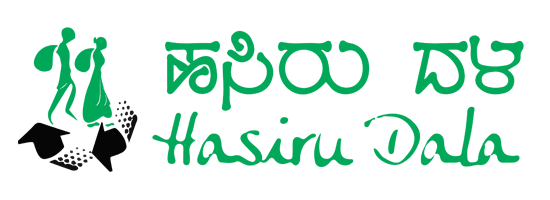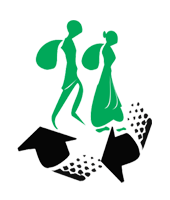Providing quality health care to waste pickers


Easy access to public health services is still a myth with vulnerable & archaically persecuted waste picking communities. This degree of health disparity amongst waste workers is further aggravated based on their religion, caste, creed, gender, migration status, the category of waste work they fall under (free roaming waste picker/sorter/ itinerant buyer/scrap dealer/operator), their native tongue, and most importantly, depending on the nature of their work (formal sector/informal sector). Hasiru Dala works to secure social justice for waste pickers and carries out interventions to address health and nutrition of the community members; Under the health intervention, organizing primary health camps at the waste pickers’ door step takes precedence, where access to primary health is difficult.
Total number of people screened in our health camps since Hasiru Dala’s Inception
Bengaluru – 12,537 Community Members
Other Cities – 9,708 Community Members
Eye screening camps


Bengaluru Five Eye camps were organized in collaboration with Sankara Eye Hospital, through which
- 586 patients were screened,
- 38 cataract surgeries were facilitated,
- 138 people received free spectacles
- 33 special consultations were facilitated.
- 1 Ocular Prosthesis provided
Mysore Three Eye camps were organised in Mysore in collaboration with K. R Hospital & C E G Hospital , through which
- 132 patients were screened
- 44 patients received free spectacles
In Rajahmundry
- 46 patients were screened
- 8 spectacles distributed
Leprosy-Rehabilitation

In the month of January 2023 in Gauribidanur is where we met Sarasa for the first time in our primary health camp. Sarasa a 31 year old widower and a mother of two children aged 8 yrs and 15 yrs is a former hair picker. Sarasa had lost her husband an alcoholic 5yrs back due to a chronic health ailment. She was detected with Leprosy first time around 6 yrs back and was initially treated at the Primary health centre in Gauribidanur. Being a single earning member in the family and fending to her children took a toll on her health as she grossly neglected it. Her Leprosy turned into drug resistant form and things worsened drastically. She later started taking treatment at Baptist hospital Bengaluru in January 2020 and after the first lockdown Covid-19 took the centre stage and due to travel restrictions she was not able to continue her treatment at Baptist hospital.
Three years later when we met Sarasa, she was in tremendous pain, she had a non healing ulcer in her right foot and both her hands were completely deformed. Sarasa’s rehabilitation journey started when she was first admitted at Schieffelin Institute of Health – research & leprosy centre, Karigiri in March 2023. She underwent a small surgery to her eyes first and then the non healing ulcer was evaluated and her right leg was amputated then , From March 2023 to November 2023 she has undergone numerous procedures, physiotherapy and has been given a prosthetic leg too. Her rehabilitation process is not over yet and still has a long way to go, but everyday she is literally taking small steps with great zeal towards standing on her own feet.
Oral Health Camp


Oral diseases are one of the most common non-communicable diseases affecting people worldwide. The prevalence rate is exceptionally high in vulnerable populations. The repercussions of untreated oral disease are severe and debilitating. Many vulnerable waste picker communities lack access to good oral health care. For those few who can access treatment, the treatment costs are often high which can lead to economic burden for the family. At Hasiru Dala our primary goal is to promote health-seeking behaviour amongst waste workers and facilitate access to primary healthcare for them.
A dental health camp was organised in association with the Bangalore Institute of Dental Sciences at DWCC Ward 52 (Mahadevpura) where oral screening was done for waste workers and their family members. Various simple dental procedures like cleaning, filling, and tooth removal were carried out

Livelihoods
DWCCs- Bangalore
Self Help Groups in DWCCs

BBMP issued a circular in March 2021 to start SHGs in DWCCs. With the support of CARE India, we started the implementation of SHG groups in the DWCCs in April 2021.
INTERVENTION: Two workshops were conducted with operators of DWCC to create awareness of the importance of SHGs. CARE India Facilitators went to each DWCC, explained its importance & and advantages and started SHGs in each DWCC.
ACHIEVEMENT: Currently, we have 36 SHGs with 252 members. Each group have approximately Rs 1,00,000 in savings. Weekly SHG meetings are conducted. 1 SHG is registered in the NULM (National Urban Livelihood Mission) portal.
Scrap Shop Surveys

As a Resource Organisation, it is our responsibility to identify the informal waste workers in solid waste management of the city.
A scrap shop survey was conducted to understand the total quantity of waste a ward generates and to identify waste pickers who would need to be provided social security and PPE kits.
INTERVENTION: Questionnaires through Google forms, building relationships with scrap shop dealers, interviews, distribution of PPE kits
ACHIEVEMENT: Data on quantity and types of waste generation in 37 wards. 505 scrap shops identified. We are planning to integrate the scrap shop dealers in TyajyaShramikaSangatane, Karnataka (TSSK) & Clean City Recyclers Association (CCRA).
IEC Programs in Schools & Colleges

Schools and colleges were identified by DWCC coordinators & and supervisors to create awareness among the school children and youth to educate them about the importance of segregation of waste, composting and solid waste management in the city
INTERVENTION: Identification of schools & and colleges in the ward, Presentation, activities and videos on waste segregation on solid waste management.
ACHIEVEMENT: Relationship with schools & colleges. Involvement of students for awareness campaigns and clean-up drives. Involvement of waste pickers in awareness in schools & colleges
Resource Recovery

Metric tonnes of waste collected

Social Security
(Aadhar card correction, bank account, E Shram card, PAN card, etc)
Self Help Groups
(Weekly SHG meetings are conducted)
Health services
(Health camp, eye camps and other health services)
Personal Protection Equipment (PPE)
(PPE like Gloves, Mask, ID card, sarees, caps and Apron are provided)
Awareness programs
Awareness program participants
Note: As per data available from the year 2014 to 2023
Data (Services Provided/Achievements)
381 Male / 160 Female
18 Male / 19 Female
Households reached through Door to Door collection
Note: As per data available from the year 2017 to 2023
Highlights








